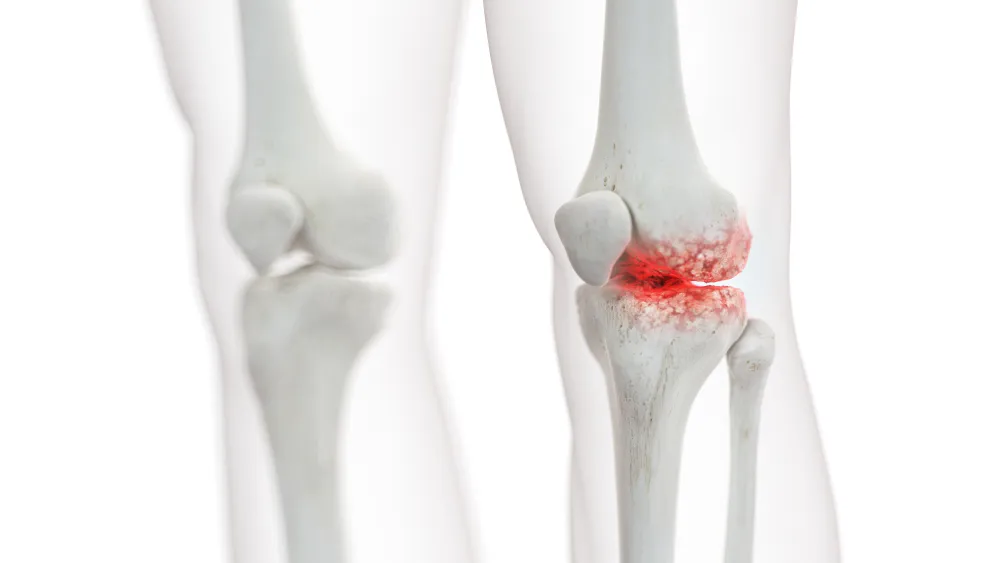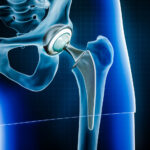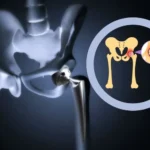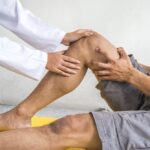Periprosthetic joint infection (PJI) is a serious infection that occur after the joint replacement surgeries, creating challenges for both patients and joint surgeons. In this detailed article, a reputed orthopaedic surgeon in Delhi discusses Periprosthetic joint infection, symptoms, and treatment in Delhi.
What are the causes of Periprosthetic Joint Infection?
Periprosthetic Joint Infection (PJI) mostly is caused due to bacteria entering the surgery location during joint replacement.
Staphylococcus aureus and coagulase-negative staphylococci are among the most common bacterias, accounting for a substantial portion of PJIs. Other bacteria, including streptococci and gram-negative bacilli, can also lead to the causes of such infections.
Multiple risk factors increase the likelihood of PJI. Patient-related factors including age, obesity, diabetes, and immunocompromised states. Prolonged operative time during surgery, inadequate aseptic technique, and pre-existing infections also has a risk of infections.
What are symptoms of Periprosthetic Joint Infection?
The following are the symptoms of Periprosthetic Joint Infection:
- Patients with Periprosthetic Joint Infection experience a noticeable increase in localized pain around the joint. The pain may be persistent, throbbing, or exacerbated during movement.
- Swelling and warmth in the area of the implanted joint are common signs of inflammation. The joint may appear visibly swollen, and the skin around it may feel warm to the touch.
- One Sign of a systemic response to infection is the presence of fever. An elevated body temperature indicate that the infection might have spread beyond the joint itself.
- Patients might experience chills, accompanied by shivering, as the body attempts to raise its temperature in response to the infection.
- A feeling of discomfort, fatigue, or unease, known as malaise, is also an indication of the body’s systemic response to infection.
- PJI can decrease the joint’s range of motion. Patients find it challenging to move the joint freely, and stiffness may become more pronounced over time.
- In some cases, the infection compromise the stability of the prosthetic joint, causing a sense of looseness or instability during movement.
- While it’s common to experience some discomfort in the initial postoperative period, persistent or worsening pain beyond the expected recovery phase is a red flag for potential infection.
- Slow or impaired wound healing around the operation area also an indication of an underlying infection.
- Pus-filled sinus tracts, channels that connect an infected area to the skin surface, might develop. These can be visible as openings or draining points on the skin near the prosthetic joint.
- Any unusual discharge or drainage from the surgery wound should be promptly evaluated, as it signify an ongoing infection.
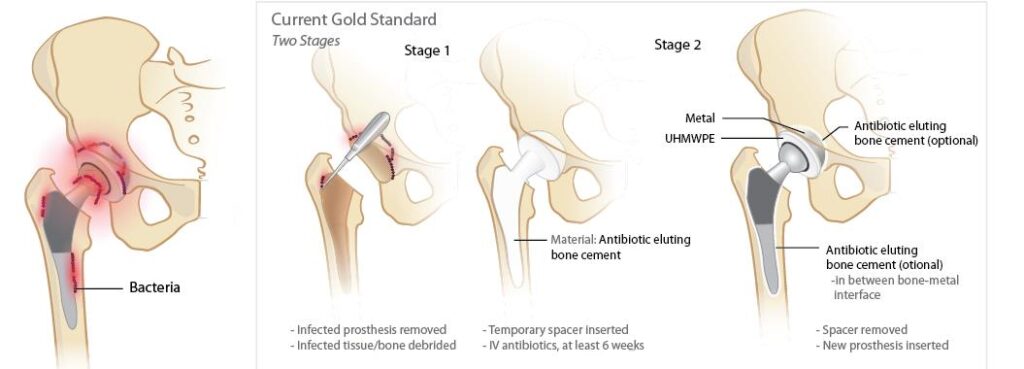
How to Diagnose Periprosthetic Joint Infection?
A good orthopedic specialist would do following tests to asses PJI:
Orthopedic surgeons rely on a combination of physical examinations, patient history, and laboratory findings to make an accurate diagnosis. The presence of sinus tracts, wound drainage, or joint effusion can be indicative of an infection.
Laboratory tests such as C-reactive protein (CRP) and erythrocyte sedimentation rate (ESR) are common lab tests to assess inflammation. Synovial fluid analysis, including cell count and culture, is another widely used assessment test. Molecular diagnostics, including polymerase chain reaction (PCR) assays, are improving the accuracy of PJI diagnosis.
X-rays, magnetic resonance imaging (MRI), and nuclear medicine scans, are used to evaluate the integrity of the implant and surrounding tissues. These tets help in identifying the extent of infection and guiding the course of action.
Periprosthetic Joint Infection Treatment in Delhi
In Delhi, the treatment of Periprosthetic Joint Infection (PJI) is carried out by experienced orthopedic surgeons and robotic surgeon doctors specializing in joint replacement and infectious diseases. Here is potential treatments available in Delhi:
Antibiotic Therapy
The choice of antibiotics is based on the particular bacteria causing the infection and their susceptibility to medications. Intravenous or oral antibiotics are prescribed, and the duration of treatment vary depending on the severity of the infection.
Wound Care: Proper wound care used to prevent the spread of infection and promote healing.
Physical Therapy: Rehabilitation and physical therapy for restoring joint function and mobility post-treatment.
Periprosthetic Joint Infection surgery in Delhi
Joint Infection surgery is recommended when no other treatment shows any signs of improvement. Following are the surgeries used:
- Debridement and Implant Retention (DAIR): In cases of early or acute infection, a surgery procedure known as debridement and implant retention may be performed. This involves cleaning the infected area, removing damaged tissues, and retaining the prosthetic joint.
- Two-Stage Revision: For more severe infections, a two-stage revision surgery is recommended. In the first stage, the infected components are removed, and a temporary spacer is inserted. After a period of antibiotic treatment, the spacer is replaced with a new prosthetic joint in the second stage.
How to prevent Periprosthetic Joint Infection?
Aseptic techniques include maintaining a sterile surgical environment, proper hand hygiene, and meticulous handling of implants to minimize the risk of bacterial contamination.
Prophylactic administration of antibiotics before surgery is a standard practice to reduce the risk of PJI. The choice of antibiotics is administered by local antimicrobial resistance patterns, and the timing of administration is important to achieving optimal effectiveness.
Consult Dr. Simon Thomas for Joint Infection Treatment
Periprosthetic joint infection is a challenge in orthopaedic surgery. Note that not all individuals with Periprosthetic Joint Infection have the same set of symptoms, and some do not show systemic signs. If you experience any signs of Joint Infection, immediately consult a reputed robotic orthopedic surgeon in Delhi like Dr Simon Thomas who assist paitients in Pashchim Vihar.










